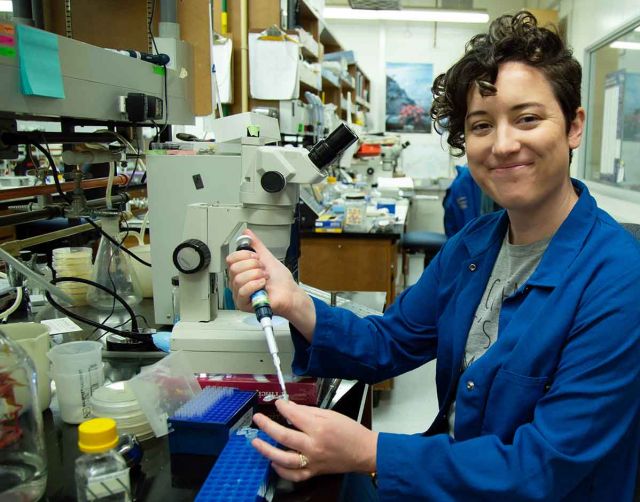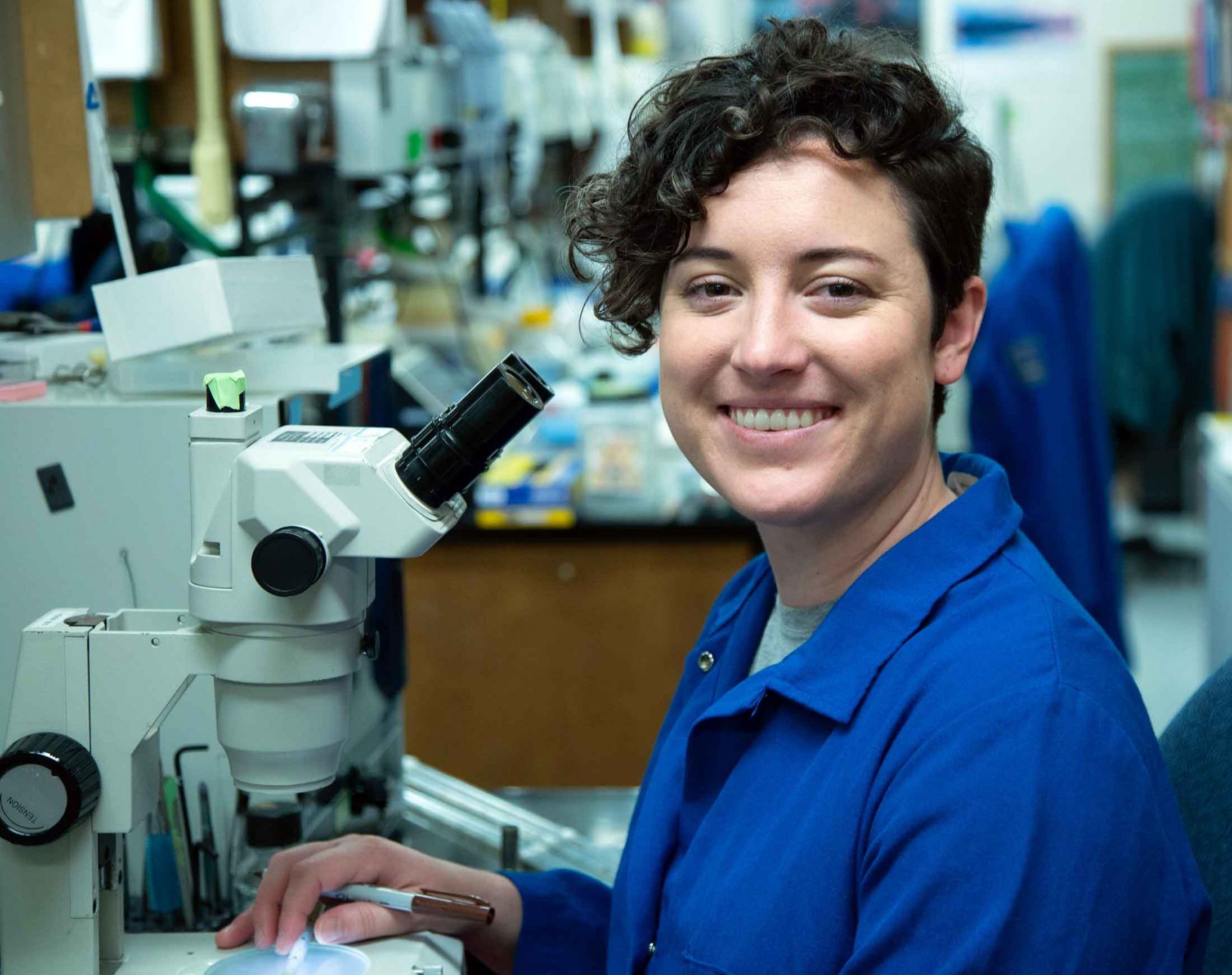
About Caroline
Caroline Ackley is a Ph.D. student in the Rothman Lab in the department of Molecular, Cellular, and Developmental Biology at UC Santa Barbara. She is from San Anselmo, California and received her B.S. degree in Biopsychology from UCSB.
Why Choose UCSB?
UCSB has great campus-wide resources beyond MCDB. For example, the Graduate Division offers professional development opportunities to help you build your CV. I plan on completing the CCUT (Certificate in College and University Teaching) to prepare for a career in academic research. We also have access to high-end equipment through facilities like the CNSI (California NanoSystems Institute). Research is a strong focus on our campus, and graduate students get support in the form of funding opportunities, mental health resources, motivated undergraduate research assistants, etc. We also have friendly competitions like the UC Grad Slam and Art in Science events that are fun to compete in every year.
Department
MCDB has a very collaborative atmosphere - people here recognize each other's strengths and are extremely enthusiastic about sharing ideas and knowledge. Professors and faculty treat graduate students like colleagues, and there are always multiple people you can turn to for advice. I also like that our department places an emphasis on developing science communication and presentation skills as well as general scientific literacy. Graduate students from MCDB and our sister department BMSE are part of a student union called GUMBI (Graduate Union of Molecular Biology Investigators) that runs seminars hosted by a different PhD candidate each week to get peer-peer feedback. We also get together for department BBQs and other social events.
Santa Barbara
Santa Barbara is a beautiful place to live with every kind of activity nearby that you could imagine. I got into road cycling shortly after moving here because of all the great bike paths and gorgeous scenery we have around. It's part of the reason why I've stayed here since starting as an undergrad in 2010!
I live in Goleta (the town adjacent to campus) because its a quiet residential neighborhood with plenty of restaurants and other things to do. However, many students choose to live in downtown Santa Barbara, which is a short drive/bus ride away from campus, and which is a popular vacation spot for people all over the world. Businesses here are extremely dog-friendly, and it's not uncommon to see one or two dogs in local breweries in our famous Funk Zone district.
I’m fascinated with how organisms develop because it’s a lot like asking how a car works by looking at how it was built – by understanding the various components, we can reach a nuanced understanding of how and why we evolved to function a certain way.
Caroline Ackley, Graduate Student
Molecular, Cellular, and Developmental Biology
UC Santa Barbara
Research
During development, gene networks guide cells to adopt specific properties and functions, leading to a complete organism comprised of highly divergent cell types. Neurons are a particularly diverse cell type that require finely tuned genetic pathways to develop correctly. My research aims to understand how these gene regulatory networks lead to form and function in neurons using the soil-dwelling nematode C. elegans and tardigrade H. exemplaris as model organisms. There are several benefits to studying neurobiology in both animals, including their size and the fact that they are both transparent. Previous work has already uncovered the entire connectome and cell-fate map of C. elegans which allows us to ask complex questions about how their brains develop. Additionally, C. elegans and tardigrades can be genetically manipulated through RNAi feeding, transgenics, and mutagenesis to understand gene regulatory mechanisms on a fine scale. Ultimately, this research could inform future studies into personalized medicine and enhance our overall understanding of how brains develop.
How and Why Did You Get Into Your Area of Research?
I earned my undergraduate degree in Biopsychology from UCSB and was fortunate to assist in a few labs on campus. After graduating, I joined Benjamin Reese’s lab as a lab technician in the field of retinal development. I’m fascinated with how organisms develop because it’s a lot like asking how a car works by looking at how it was built – by understanding the various components, we can reach a nuanced understanding of how and why we evolved to function a certain way. Once I joined the graduate program, I switched from working with mice to working with worms because of the kinds of experiments you can perform in such a small, short-lived animal. Our generation of researchers has incredible access to cutting-edge genetic tools (like CRISPR) that makes the work I do especially exciting.
What Do You Find Rewarding About Your Research?
Worm research is exciting because we are constantly finding out new things about an organism that people don’t often think (or even know) about. Although it might seem far removed from the kind of research that leads to life-saving medical interventions, a lot of important discoveries that changed our understanding of human biology were first made in C. elegans. I love doing research that answers questions more closely related to who we are and where we came from and thinking about what kind of impact it might have in the future.
Related Links
Video on this page does not contain audio.
